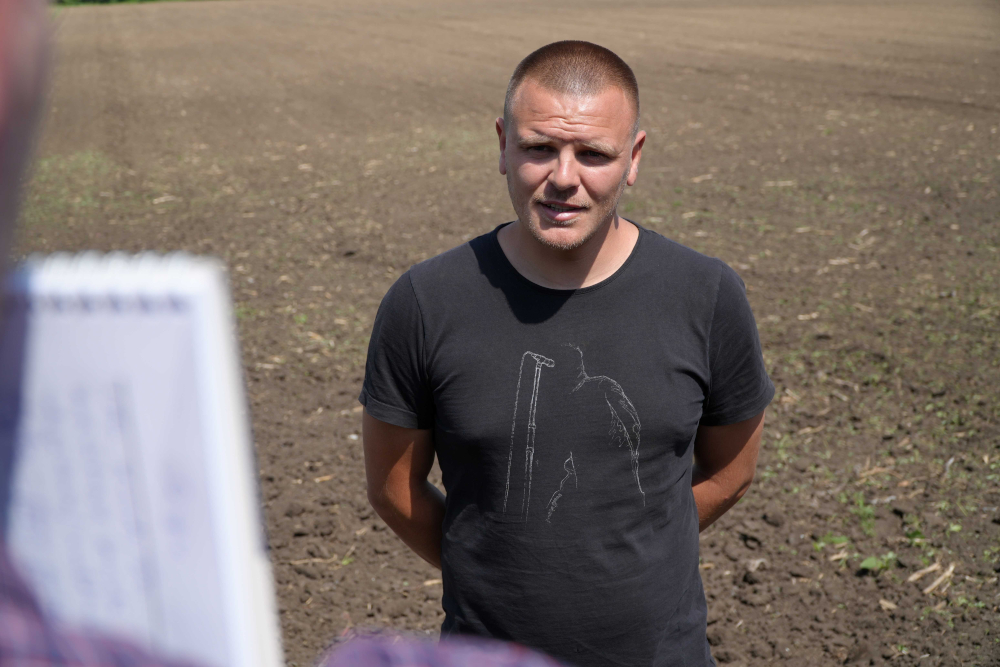The Republic of Moldova has sown its first legal industrial hemp crops, marking a historic moment for the country’s agriculture sector and a return to a long-dormant crop with deep traditional roots and modern potential.
One of the first farmers to enter the program is Ion Sahanovschi of Bălăbănești, Criuleni district, who planted 8 hectares (~20 acres) of hemp as a trial on his 700-hectare (1,730-acre) farm.
“It’s a start. If we want to know what potential it has, we have to try,” Sahanovschi said.
The planting follows the government’s approval of a new legal framework that permits hemp cultivation strictly for fiber and seed purposes. The program is intended to support sustainable development, increase economic opportunity, and open new industrial value chains in one of Europe’s poorest countries.
Fiber and seed only
The updated regulations, adopted in 2024, distinguish industrial hemp from marijuana, but retain stringent restrictions on hemp flowers and cannabinoids such as CBD. Cultivation is permitted solely for industrial uses—namely fiber, seed, and oil production.
All growers must obtain authorization through the Agency for Medicines and Medical Devices, acting via the Standing Committee on Drug Control. They are required to possess a processing certificate and a contract with an approved hemp processor. Applications are submitted online through a centralized platform, reducing bureaucratic hurdles.
Permitted hemp varieties must be listed in Moldova’s National Plant Variety Catalog, the EU’s Common Catalog of Agricultural Plant Species, or catalogs maintained by EU member states. Farmers must also keep detailed records of harvest and product marketing under state monitoring.
Promise for economy
Moldovan officials have promoted the hemp initiative as a tool to diversify rural economies, attract private investment, and reduce environmental impact. The Ministry of Agriculture and Food Industry has encouraged farmers to capitalize on the new rules and explore industrial hemp’s potential to strengthen rural incomes.
Agriculture contributes about 12% of Moldova’s GDP and employs roughly 27% of its workforce. The country’s sunny climate and fertile soils support a broad agricultural base, including grapes, cereals, fruits, and sunflower seeds. Hemp, officials say, offers a natural fit and fresh opportunity.
In addition to economic benefits, hemp is recognized for its sustainability. With a fast 90-day growth cycle and high biomass yield, it allows for multiple annual harvests and absorbs large amounts of carbon dioxide. Officials have said hemp can contribute to a circular economy by minimizing waste and maximizing the plant’s utility across multiple sectors—from construction and textiles to bioplastics and fuel.
Rebuilding a value chain
Sahanovschi is among the founding members of a newly created hemp association that connects producers with processors. His harvest is expected to be delivered to a domestic processing plant, as Moldova begins building the infrastructure required to support a modern hemp supply chain.
Officials see hemp as a catalyst for innovation and a means to modernize Moldova’s agricultural economy. The legal reforms are part of a wider push to introduce higher-value crops and create alternative income channels for rural areas.
Prime Minister Dorin Recean has previously called on Moldova’s business community to take advantage of the industrial hemp opportunity, noting that its byproducts are used in sectors ranging from automotive manufacturing to construction and food.
A revival of heritage
The launch of Moldova’s hemp program also reconnects the country with its agricultural heritage. Formerly part of traditional hemp powerhouse Romania, Moldova has a long history of using hemp in textiles, food, and medicine. Wild hemp still grows naturally across the countryside, a botanical reminder of that legacy.
As Moldova’s hemp sector takes root, government officials and stakeholders say further regulatory changes may follow, particularly concerning cannabinoids. For now, the focus remains on establishing a stable, fiber- and seed-based market that can generate jobs, attract investors, and expand the country’s role in Europe’s hemp economy.
